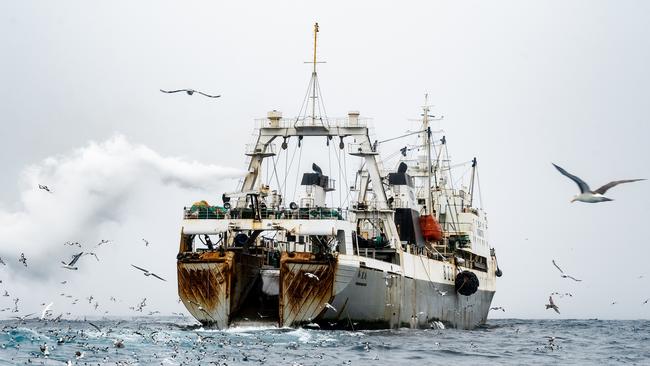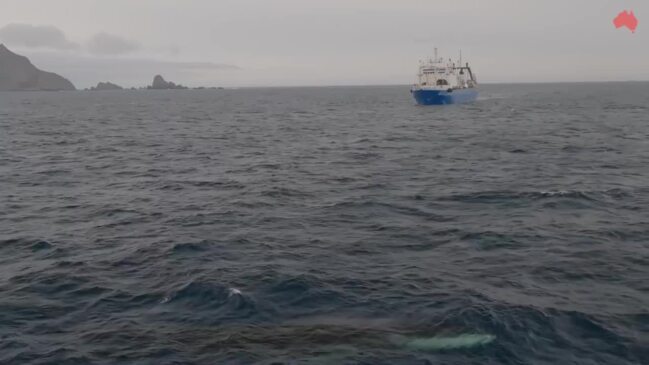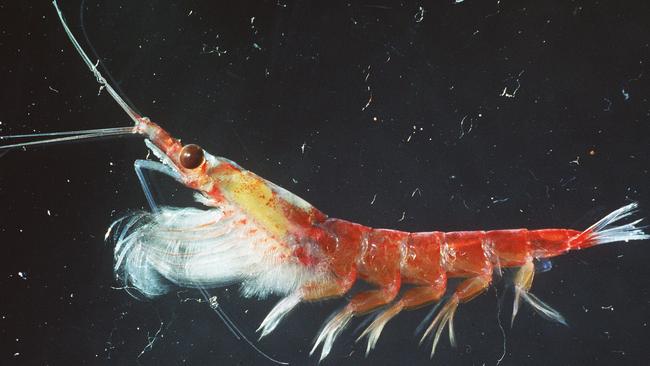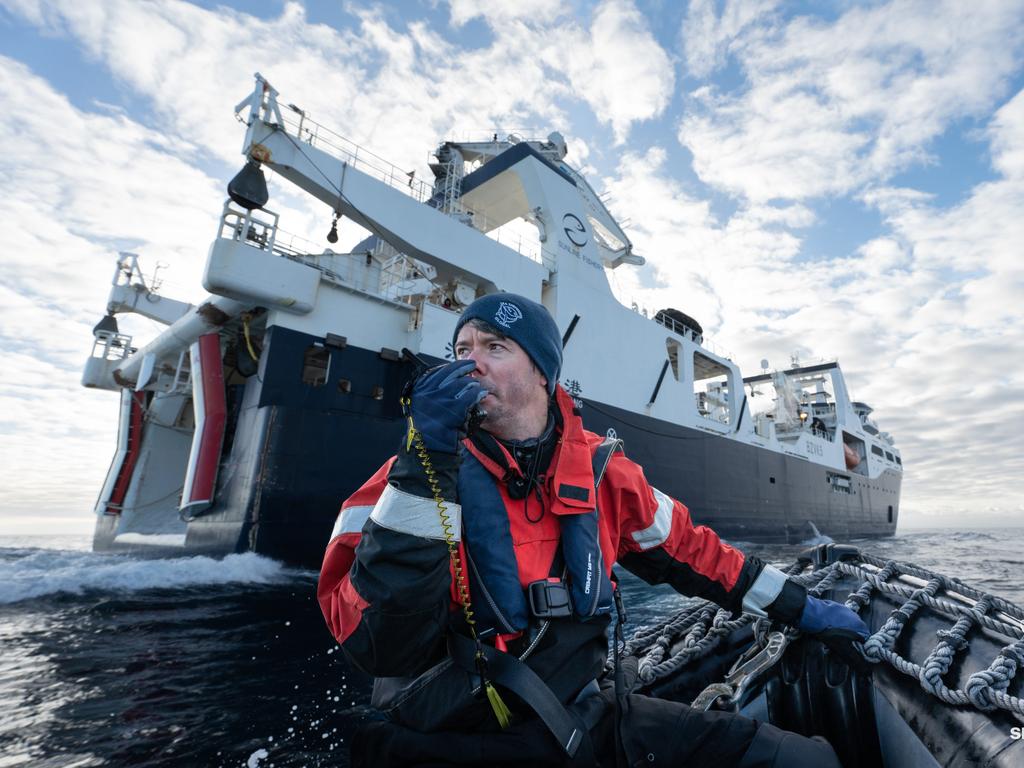Salmon’s secret: Antarctic krill used in fish feed
Australian salmon producers have confirmed using Antarctic krill in fish feed, as a leading scientist quits the krill industry’s expert panel, concluding krill harvesting is “wrong” and should be banned.

Australian salmon producers have confirmed using Antarctic krill in fish feed, as a leading scientist quits the krill industry’s expert panel, concluding krill harvesting is “wrong” and should be banned.
Feed producer BioMar Pty Ltd, supplier to major Australian salmon growers, confirmed it used krill meal from Antarctic krill harvester Aker BioMarine.
This is despite growing concern among scientists and conservationists that Antarctic krill harvesting is overly concentrated, encroaching on whale foraging and snaring whales as bycatch.
Australian supermarkets and chemists, as well as consumers, are about to be targeted in a campaign by the Bob Brown Foundation, raising awareness of krill use in Australian salmon farming and health supplements.

The krill fishing regulator – the Commission for the Conservation of Antarctic Marine Living Resources – is under fire for failing to factor into catch limits key issues such as climate change and needs of major krill predators, including whales.
BioMar – backed by key salmon producers Huon Aquaculture and Petuna – defended the use of krill meal in their fish feed. Tassal did not comment.
“Krill meal from Aker BioMarine is an efficient and safe way to deliver a number of essential nutrients from a natural source of prey,” said BioMar managing director David Whyte.
“The Antarctic krill fishery is … one of the best managed and most sustainable fisheries in the world … and closely regulated by CCAMLR. The krill catch limit is set to well below 1 per cent of the Antarctic krill biomass.”
However, a key member on the krill industry’s expert panel, leading German marine mammal scientist Helena Herr, has quit in recent days, concluding the industry engages in “greenwashing” and needs to be “banned”.
“As a scientist as well as a private person I am convinced that krill fishing is wrong and that a ban of krill fisheries in the Southern Ocean is needed,” Dr Herr said in a resignation email.
“I had hoped that the expert panel may have some influence, providing guidance and advice on the design and appropriateness of measures taken to mitigate harmful effects of the krill fishing industry on the Antarctic ecosystem.

“But the limited scope and focus … (means) I do not have the feeling that our expertise is sought to improve measures, or even to design measures most appropriate, but solely to legitimise.”
Dr Herr had come to believe the krill industry’s scheme of voluntary measures was “greenwashing” that was likely to drive fishing into whale foraging areas.
Association of Responsible Krill Harvesting Companies executive officer Javier Arata said Dr Herr’s resignation was “unfortunate” but that her departure “should not detract from the importance” of the industry’s voluntary restricted fishing zones.
Dr Arata said Dr Herr had not expressed “any specific issues” during her year on the expert panel. “Recent survey data, including research by Helena, proves that humpback and fin whales have made a remarkable recovery since the end of the whaling era, despite concurring krill fishing operations during the past 30-plus years,” he said.

The association was “proud of our voluntary approach to krill management”. “CCAMLR would obviously not thank (us) if what we are doing is greenwashing,” Dr Arata said. “We fully support CCAMLR‘s development of new regulations.”
Mr Whyte said Aker BioMarine eliminated “almost all bycatch” and had “rigorous” Marine Stewardship Council certification. However, the council has been condemned by conservation groups for certifying krill, a cornerstone species underpinning life in Antarctica.
WWF said it objected to MSC certification for krill fishing. “We highlighted several issues with the current management framework not incorporating climate change into stock assessments, the localised depletion of krill stocks and the subsequent impact on krill predators, and the multi-year delay in updating management measures,” WWF’s Emily Grilly said.
MSC did not respond by deadline.







To join the conversation, please log in. Don't have an account? Register
Join the conversation, you are commenting as Logout